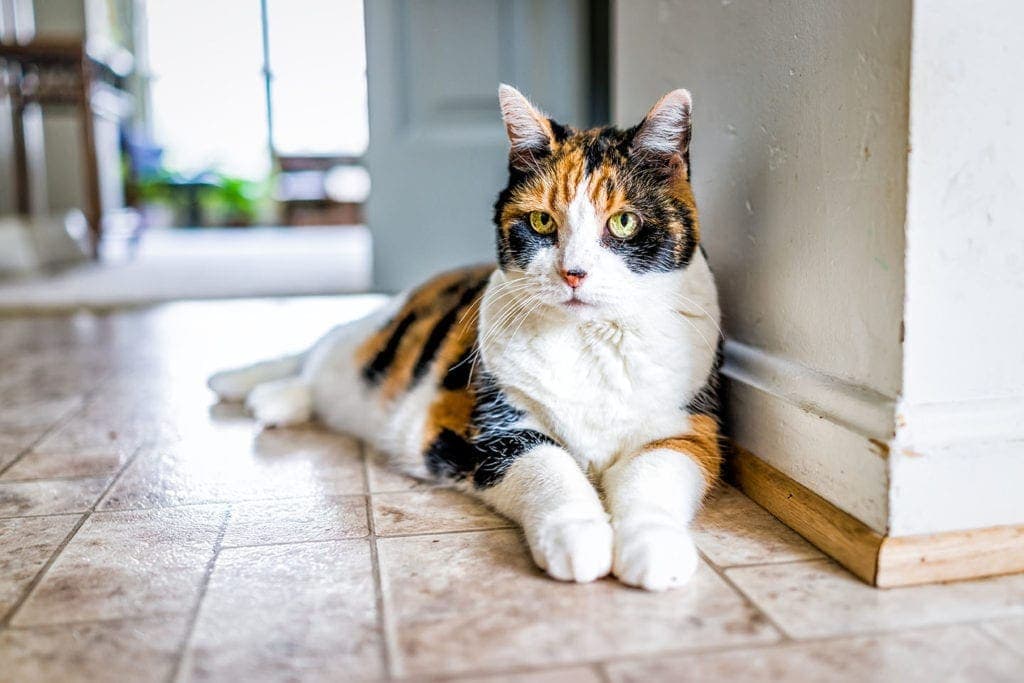
If you’re considering adding a new kitten to your family, one factor to consider is how often the baby cat will be left alone. Cats may seem more self-sufficient than dogs because they don’t need to be walked, but that’s not always the case, especially when they’re young. Kittens under 4 months usually shouldn’t be left alone for more than 4 hours, and older kittens still need closer supervision than adult cats.
In this article, we’ll discuss why kittens shouldn’t be left alone for long and how to keep them safe and happy when you do. We’ll also discuss separation anxiety in cats and what signs you might notice if your kitten struggles with being left alone.
Why Kittens Can’t Stay Home Alone for Long
Due to their small stomachs and to help fuel their rapid growth, kittens need to eat more frequently than adult cats. Until they reach 6 months old, kittens should eat 3–4 times a day. One reason why kittens can’t be left alone too long is to make sure they’re fed on a regular schedule.
Kittens are curious and extra vulnerable due to their small size. When your kitten is left alone, they risk getting hurt. Finally, a kitten can get lonely if left alone for too long. Despite their reputation for independence, research shows that most cats form attachments to their owners just like dogs. The prime time cats form these attachments is when they are kittens.
Spending time with your kitten will help them form a bond with you that can continue into adulthood. Leaving your kitten home alone for long periods robs them of some of that bonding time with you.

Keeping Your Kitten Safe at Home
When you do need to leave your kitten home alone, there are some precautions you can take to keep them safe and entertained. Consider confining your kitten in a small, safety-proofed room such as a bathroom while they’re home alone. Ensure there are no electrical cords to chew or dangerous substances like poisonous plants your kitten could ingest. Another option for young kittens is using a large dog crate as a temporary safe space.
Ensure your kitten has a litter box, water, and food in their safe space. To keep them entertained and out of trouble, provide an appropriate scratching location and toys for your kitten to play with. Leaving a TV or radio playing nearby may help your kitten feel less lonely.
If you are away from home for more than 4 hours, consider hiring a pet sitter or asking a friend to check on your kitten.

Separation Anxiety in Cats
Once your cat is a healthy adult, they may be able to stay alone for longer periods, even as long as 24 hours without supervision. However, cats of any age can develop separation anxiety like dogs. Cats overly attached to their owners may not handle being left alone very well.
Common signs of separation anxiety in cats include:
Some of these signs can also indicate other medical or behavioral problems. If you notice any of them, talk to your veterinarian. They may recommend an exam and tests to rule out medical issues. If separation anxiety is suspected, your vet can also help you manage this condition.
Conclusion
If you’re away from home for long hours at a time, it doesn’t mean you can’t get a kitten, but you’ll need to put in extra effort to care for them, especially during the first few months of life. Hiring a pet sitter, getting help from friends and family, or just running home to check on your kitty during your lunch break are all options. Adult cats are usually more self-sufficient, but any cat can develop behavioral issues if they don’t get enough attention. When you are home, dedicate time to playing, cuddling, or petting your cat each day.
Featured Image Credit: Daniel Zopf, Unsplash







